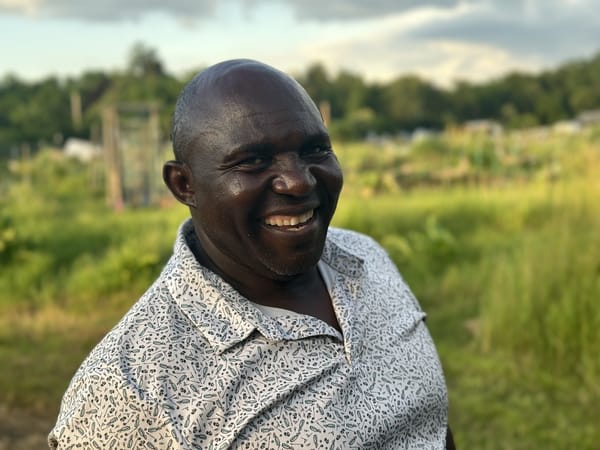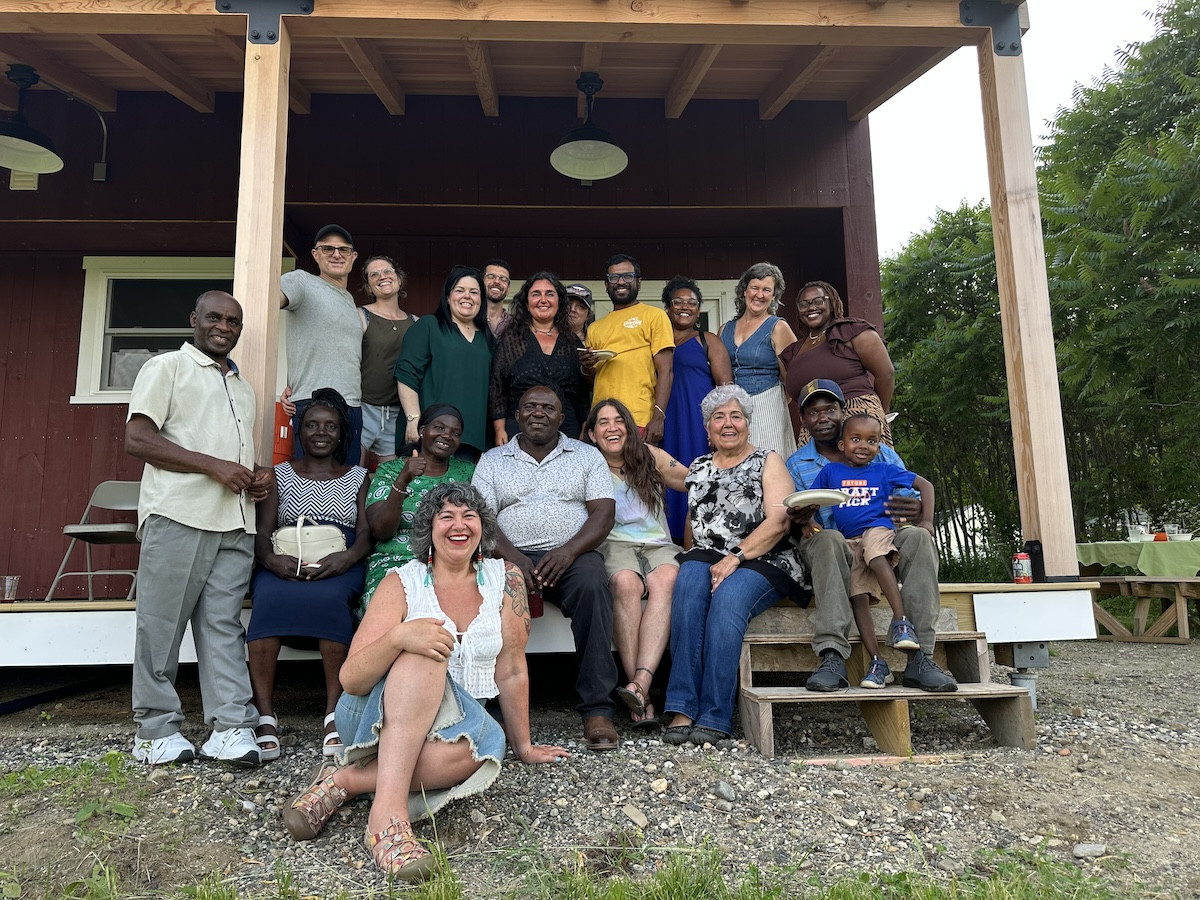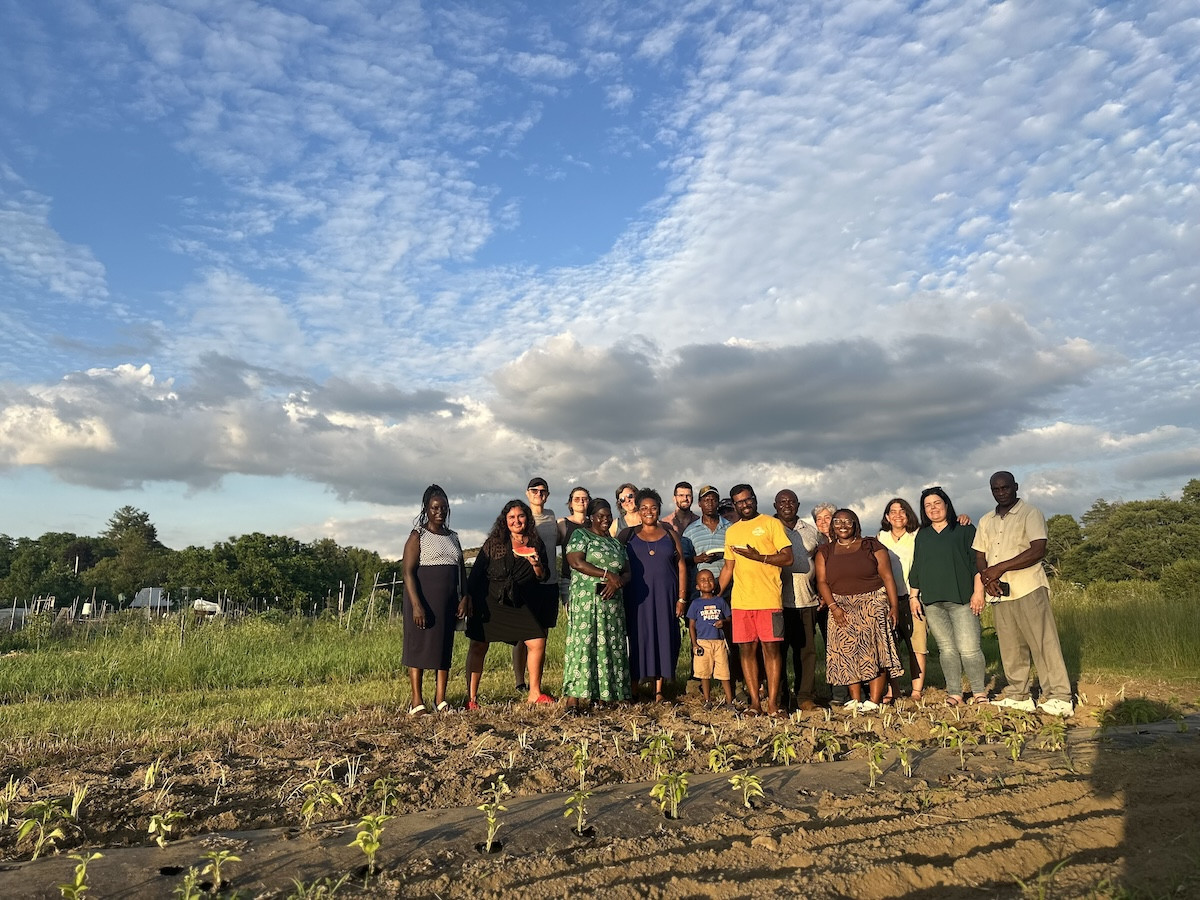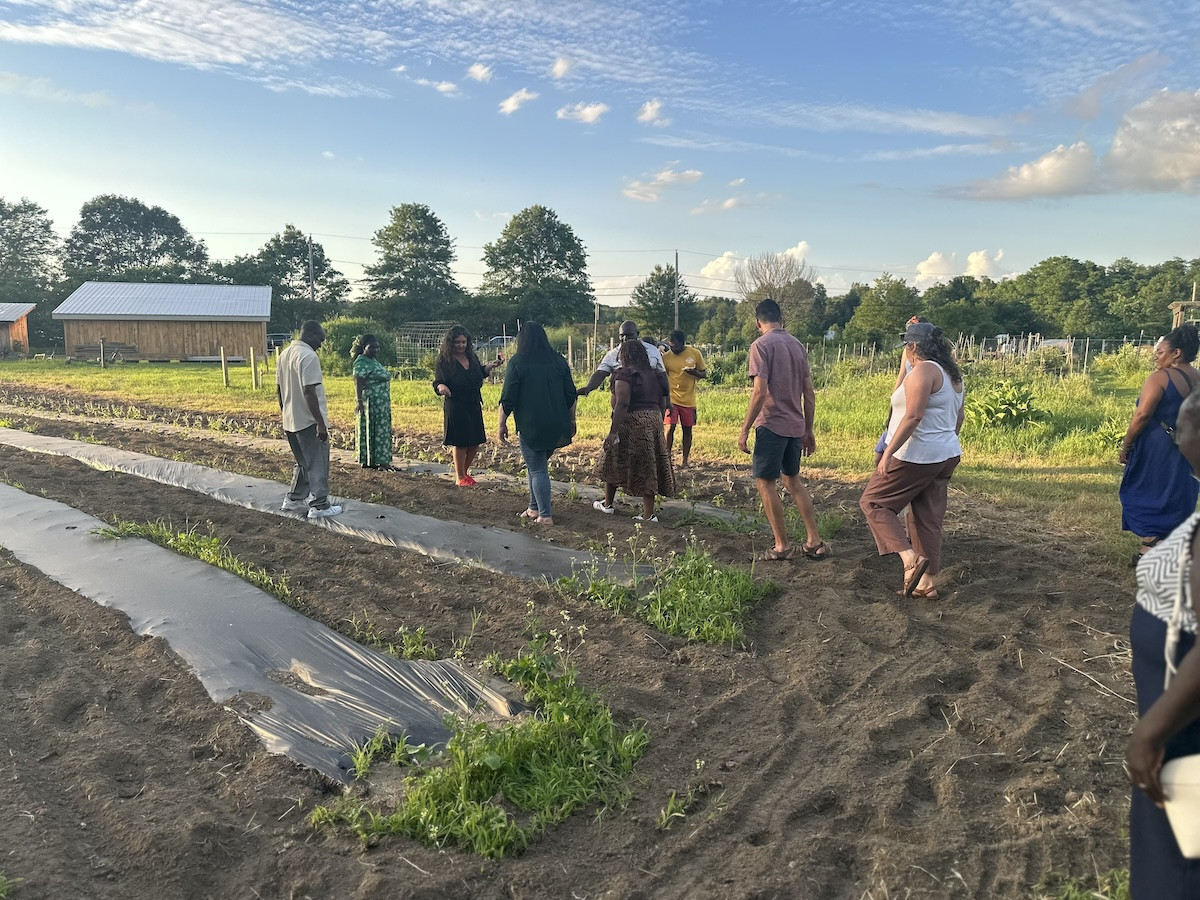Kenyan Farmer Finds Land and Home with Support from Two Regional Agriculture Programs
Aoma Muma brings Bombeta Farms and family to Grow Food Northampton fields.

Aoma Muma brings Bombeta Farms and family to Grow Food Northampton fields.

Aoma Muma, founder of Bombeta Farms
Aoma Muma was born a farmer. Raised in Kisii, Kenya, he grew up around family and neighbors who cultivated tea, coffee, maize, beans, and vegetables both to earn a living and to feed their families. Now moving to Western Massachusetts, to Muma, farming is much more than an occupation, it is an essential part of who he is and how he connects with and serves his community. “Farming is part of me. It’s inseparable,” he says.
Muma, who has been operating Bombeta Farms in Templeton Massachusetts, is moving closer to the RI Region, to land in Northampton, with the help of two programs looking to aid more farmers of color here in the Berkshires.
Soon Muma will take up residence in Northampton as part of a new collaboration between Grow Food Northampton (GFN) and the Northeast Farmers of Color Land Trust (NEFOC-LT). For the first time in its 15-year history, GFN will provide stable, affordable housing along with access to land on its 121-acre community farm. Muma will be the program’s inaugural farmer in residence. The initiative reflects the shared mission and goals of both groups to create equitable land access and sustainable food systems that prioritize historically marginalized farmers and communities in Western Massachusetts.

Muma, his family, community members and staff from Grow Food Northampton and the Northeast Farmers of Color Land Trust come together to celebrate the new partnership in Northhampton.
GFN offers low-cost land leases to small farms and farmers of color, and hosts over 300 community garden plots on its farm. NEFOC-LT works to provide land to the stewardship of Indigenous, Black, and other farmers of color, as well as to support and restore traditional and ancestral rituals and technologies to farming practices, with a focus on reparative justice.
Two years ago, when GFN and NEFOC-LT partnered in a call for applications to lease land on the GFN site, “no farmers of color applied,” says Mandana Boushee, NEFOC-LT staff member. “When we looked at possible reasons why, it became clear that there was a housing crisis. Most farmers can’t afford to live close to where they farm. We needed to find housing to go with this land.”
A solution emerged soon after, when a two-family home adjacent to the GFN farm, known locally as the “Mushroom House” because of its distinctive 1970s architecture, became available. GFN and NEFOC-LT acquired and renovated the home, pairing it with a one-acre plot of land.

For Muma, this new opportunity represents the next phase of what has already been a long and winding journey. After completing his education in Kenya, Muma became an elementary school teacher, but devoted his time outside of the classroom to building a family farming business. He grew tea and vegetables, raised chickens and cattle, sold trees for lumber, and made bricks out of the clay of the land. “It was a pretty big shop,” Muma recalls. “We made enough income to support the business and our daily needs.”
Even with this success, Muma dreamed of seeing the world. “My father never left our homeland in Kisii,” he says. “But I always wanted to travel abroad.” That dream came true in 2002, when Muma won a visa lottery and moved to the United States. First settling in Leominster, Muma started growing crops in his yard, with the help of a neighbor, an elderly Hmong monk. Another local farmer, from whom Muma bought goat meat, a Kenyan staple, allowed him to cultivate a small plot of land, where Muma experimented with growing cultural crops like spider flowers. By 2008, Muma had expanded to an acre, and started selling his produce through local CSAs and farmers’ markets.
Today, Bombeta Farms operates on 20-acres and is named after his tribe in Kenya, where he grows cultural crops like amaranth, chinsaga, managu, and pumpkin vines, alongside familiar New England produce. “We bring food to those that don’t have access to the kinds of foods that they need in their body to be healthy,” he says. “We are also growing cultural foods that people used to eat but cannot find here.”
But building Bombeta Farms has not been easy. Like many small farmers of color, Muma has struggled with access to equipment, which can impact growth. “We need tractors, cultivators, tillers. Without equipment, it takes too much time, and we can’t scale,” he explains.
Mentorship is central to Muma’s vision of growth and sustainability. Just as he learned from experienced farmers, he now sees himself as a guide for others. “We are teachers in agriculture,” he says. “We teach the public about new crops and their nutritional value. Farming is a learning thing. We learn from each other.”
The former school teacher is especially passionate about being a role model for young people considering farming as a career. “My hope is that one day I will be able to mentor children from the schools to start loving farming the way we were taught when I was young,” he says. “I want to show the next generation that farming gives us life.”

The father of five children, Muma is now moving with his wife and family into the “Mushroom House.” He has already started sharing labor and resources with other farmers at GFN, while operating two Farm locations. According to Boushee, GFN and NEFOC-LT are also looking for a larger plot of land in the area, “so that Muma can move his entire Bombeta Farms operation closer to where he lives.”
Muma’s next immediate goal is to open a market store in Northampton. He also wants to use the GFN site as a teaching and incubator farm, where he can continue mentoring young farmers, and experiment with new crops to meet the needs of his community. “I want to learn what they need, to grow the crops that they were eating before, and also bring more diversity and add value to the food.”
For Muma, the support of Grow Food Northampton and NEFOC-LT feels deeply personal. “I never knew that I would be able to farm in the US. That’s a miracle to me,” he says. “What I eat is what I bring to the market. We are bringing unique foods that people don’t find in the store. When someone tastes food that they have never tried before, and you see the smile on their face, that is my happiness, and that is what this opportunity has allowed me to do.”
Both GFN and NEFOC-LT also hope that this initiative will serve as a precedent and a “seed for future projects,” as Boushee puts it. They want to spread the word to farmers in need in Western Massachusetts that there is a resource here for them, and a community too.